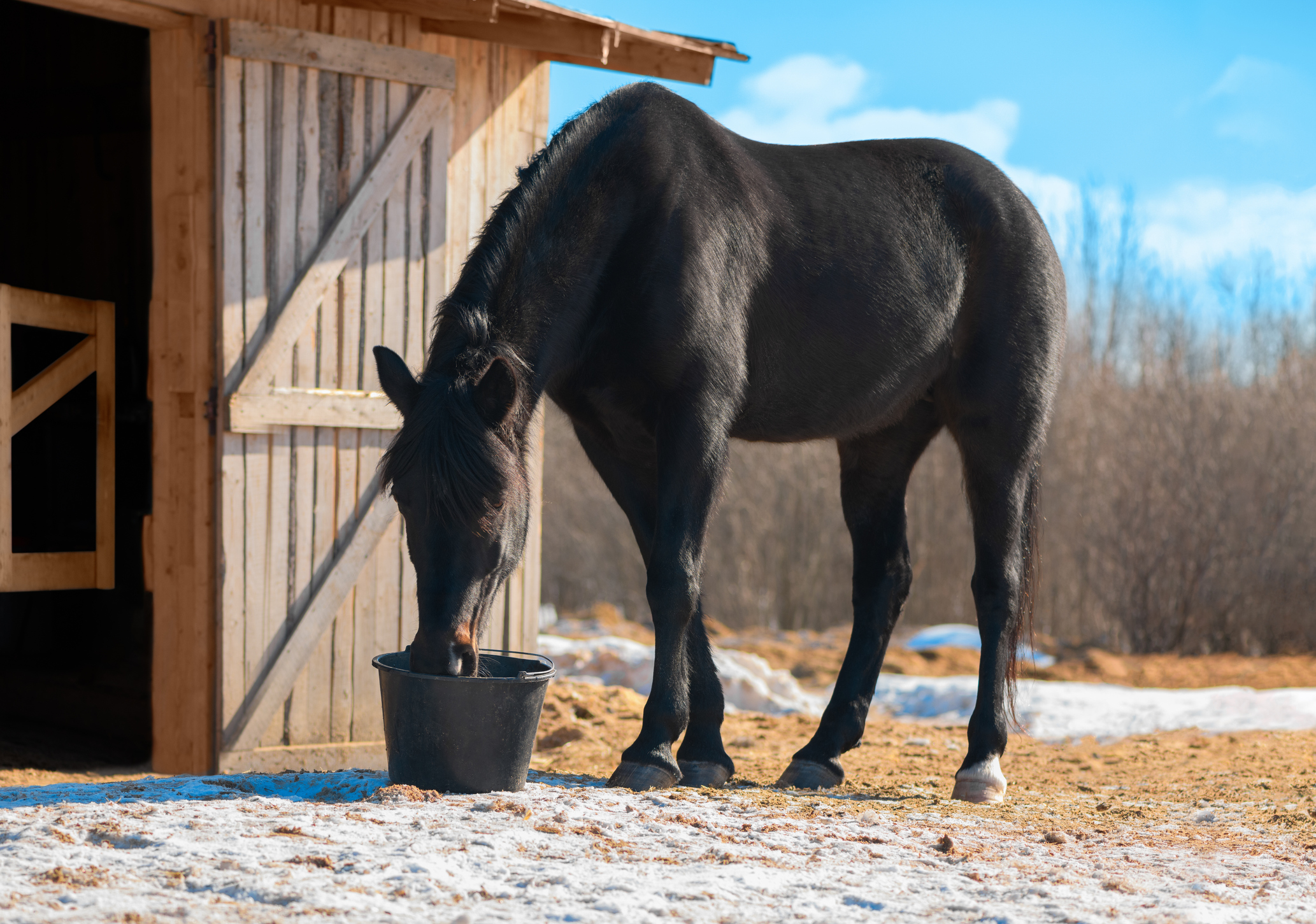Equine Omega Complete and Equine Omega Vitamin E, both patented products, provide high quality sources of marine derived omega-3 fatty acids to help support joint health. Equine Omega Complete and Equine Omega Vitamin E may help regulate inflammation associated with training and exercise.
Prolonged exposure to inflammation perpetuates the cycle of cartilage destruction within the joint and can lead to arthritic conditions. Deterioration of cartilage is often accompanied by changes in the bone and soft tissue. Once inside the body, omega-6 and omega-3 fatty acids have hormone-like properties. With the addition of omega-3 fatty acids to the diet, particularly the long chain fatty acids, eicosapentaenoic acid (EPA) and docosahexaenoic acid (DHA), overall production of pro-inflammatory molecules decreases while the production of anti-inflammatory molecules increases. Omega-3 fatty acid supplementation may reduce overall inflammatory status, helping support healthy joint function.
The horse’s long bones as well as others are covered at the ends by articular cartilage the purpose of which is to provide an optimal joint surface for joint movement. Specifically, it prevents friction between two bones where they come together to form a joint. Due to concussion and the forces applied to joints, they can be prone to swelling and inflammation that can ultimately lead to degradation especially degradation of the articular cartilage. Of course, this can create a vicious cycle because without good articular cartilage the joint is at greater risk of degenerative forces.
Ultimately this degradation of the joint can result in the condition known as osteoarthritis which is a degenerative joint disease that can cause a lot of pain and discomfort. In some horses it may result in significant reductions in performance, retirement from work under saddle and in particularly severe cases if quality of life cannot be maintained, euthanasia. Recent research conducted by a group of veterinary scientists from Finland has discovered that horses with osteoarthritis have different fatty acid profiles in their synovial fluid (the fluid within the joint capsule) and extracellular vesicles (EVs).
The purpose of EVs is to function as transporters for fatty acids and other compounds between joint tissues. They have the interesting ability to both positively and negatively impact osteoarthritic effects. The fat composition of EVs can impact the stability of their membranes and how well they are taken up by target cells and the subsequent influence they have.
The marine derived polyunsaturated fatty acids (PUFAs) eicosapentaenoic acid (EPA) and docosahexaenoic acid (DHA) are generally considered to be beneficial to joints due to their anti-inflammatory and chondroprotective effects. However, data as to how effectively fatty acid supplements might impact the risk of osteoarthritis, ameliorate pain, or improve the function of joints in humans has been inconclusive.
We know that these fatty acids can modify the fatty acid profiles of synovial fluid, but their effect on inflammatory markers and cartilage degradation has been varied. Some studies show minor effects while others have reduced the formation of inflammatory factors and compounds known to degrade cartilage.
The Finnish researchers collected synovial fluid from 8 horses with osteoarthritis and 8 horses without osteoarthritis and joint surfaces were graded for the severity of osteoarthritis. Fatty acid profiles were determined for the synovial fluid collected. The results demonstrated that joints with naturally occurring equine osteoarthritis can be distinguished from normal joints based on their fatty acid profiles in the synovial fluid. While the purpose of the study was not to find a diagnostic for osteoarthritis through fatty acid profiling of joint fluid, the researchers did suggest that fatty acid manipulations could be utilized to prevent or slow down disease progression into debilitating osteoarthritis.
The research identified that osteoarthritic joints tended to have elevated levels of 18:2n-6 which is the omega-6 fatty acid commonly found in vegetable oils, nuts and seeds. It is possible that osteoarthritic joints may not convert 18:2n-6 to the longer 20 carbon chain derivatives. 18:2n-6 is known to induce potentially adverse effects on joint tissues by stimulating the release of inflammatory agents and cartilage degrading compounds.
What does this mean to horse owners? Knowing from previous research that the marine derived PUFAs can help with pain management of joints, this most recent research suggests that they may also be able to positively impact the progression of osteoarthritis in the horse. This creates a compelling case for making a source of marine derived omega-3 fatty acid a part of a performance horse or senior horse’s diet. Equine Omega Complete and Equine Omega Vitamin E both provide high quality sources of marine derived omega-3 fatty acids to help support joint health.
Mustonen, AM., Lehmonen, N., Paakkonen, T. et al. Equine osteoarthritis modifies fatty acid signatures in synovial fluid and its extracellular vesicles. Arthritis Res Ther 25, 39 (2023). https://doi.org/10.1186/s13075-023-02998-9



